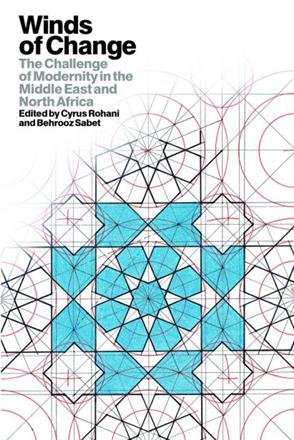You are here
Live as a (healthy) traveller
By Sally Bland - Jan 04,2016 - Last updated at Jan 04,2016
Selected Healing Modalities from the Quran—A Holistic Approach with Universal Applications
Laila N. Irshaidat
Amman, 2015
Pp. 303
Faith is often thought to be the opposite of science, but Laila Irshaidat’s new book demonstrates the considerable overlap between these two fields of human consciousness. An observant Muslim, Irshaidat has been interested in holistic and energy therapies for over 20 years, and attained a doctorate in natural health. In the world view she expounds in these pages, nothing is random, and human beings should leave neither their spiritual life nor their health to chance. “A proper understanding of the existence of a Divine plan for humanity enables one to live in peace and tranquillity.” (p. 21)
Mental and physical health is a state of wellbeing one must actively cultivate, and the wisdom found in the Koran is an essential guide in this respect. In Irshaidat’s view, Islam is “a religion compatible with human nature… that disciplines human instincts and desires without suppressing them completely… “(p. 65)
To demonstrate the applicability and benefits of the Koran, Irshaidat systematically examines the meaning and practice of the Five Pillars of Islam in successive chapters. For each pillar, she draws parallels to scientific knowledge, and to the beliefs and practices of other religions. She cites numerous scientific studies that reinforce the validity of the Koran’s teachings, as well as the opinions of philosophers, historians, doctors, psychologists and scholars from diverse cultures and religions. As an example, she cites Arnold J. Toynbee’s still relevant words: “The extinction of race consciousness as between Muslims is one of the outstanding achievements of Islam, and in the contemporary world there is, as it happens, a crying need for the propagation of this Islamic virtue.” (p. 59)
Prayer is compared to meditation, and the health benefits of each body position of Muslim prayer, if done regularly, are explained in detail. “Prayer is the most powerful tool in bringing the mind and body into harmony. The teachings of Islam give special attention to the mind, since it has a tremendous capacity over the biological functioning of the body.” (p. 86)
Charts are included to show the resemblance of Muslim prayer positions to yoga postures, and quotes from medical doctors and neuroscientists affirm the benefits of such movement in slowing the progress of diseases such as Alzheimer.
The call to prayer (athan) and chanting the Koran is connected to sound therapy. Irshaidat cites recent research showing that “the regular breathing and musical structure of chanting can have significant and positive physiological impact.” (p. 119)
Ablution is likened to hydrotherapy, as it covers important spots in the body corresponding to the zones treated in reflexology. Irshaidat notes, “One of the most efficient tools to manage anger is to preform ablution.” (p. 152)
The spiritual and health benefits of fasting — the ultimate detox — are explained, while the following chapter lists the properties of sacred foods mentioned as beneficial in the Koran: palm dates, olives, grapes, pomegranates, figs, Cavendish bananas, honey, black cumin (nigella seeds) and ginger. Water is considered sacred in all religions, and there is an analysis of why zamzam water is uniquely beneficial.
In a chapter, titled, “Experience the Joy”, Irshaidat synthesises the Koranic wisdom highlighted in previous chapters to present an Islamic perspective on fighting depression and a recipe for joy that also includes falling in love with nature and living in the present. In fact, Irshaidat advises to live life as a traveller, referencing Prophet Mohammad’s saying: “The worldly comforts are not for me. I am like a traveller, who takes rest underneath the shade of a tree and then moves on to his ultimate destination.” (p. 220)
At a time when some are carving deeper divisions between different religions and sects to their own advantage, Irshaidat emphasises the commonalities among various faith traditions.
This book can serve as a beautiful introduction to Islam for those who need such introduction. Those already in the know can benefit from its integration of Koranic teachings with health advisories. The book is aesthetically pleasing and embellished with stunning paintings done by the author, as well as photos. Anyone interested in this book can contact the author at laila@omnitrade.jo or +962777740055.
Related Articles
Winds of Change: The Challenge of Modernity in the Middle East and North AfricaEdited by Cyrus Rohani and Behrooz SabetLondon: Saqi Books, 2
Bad Girls of the Arab WorldEdited by Nadia Yaqub and Rula QuawasAustin: University of Texas Press, 2017Pp.
AMMAN — Jordan on Monday condemned the repeated burning of a copy of the Holy Koran in the Danish capital, Copenhagen.













